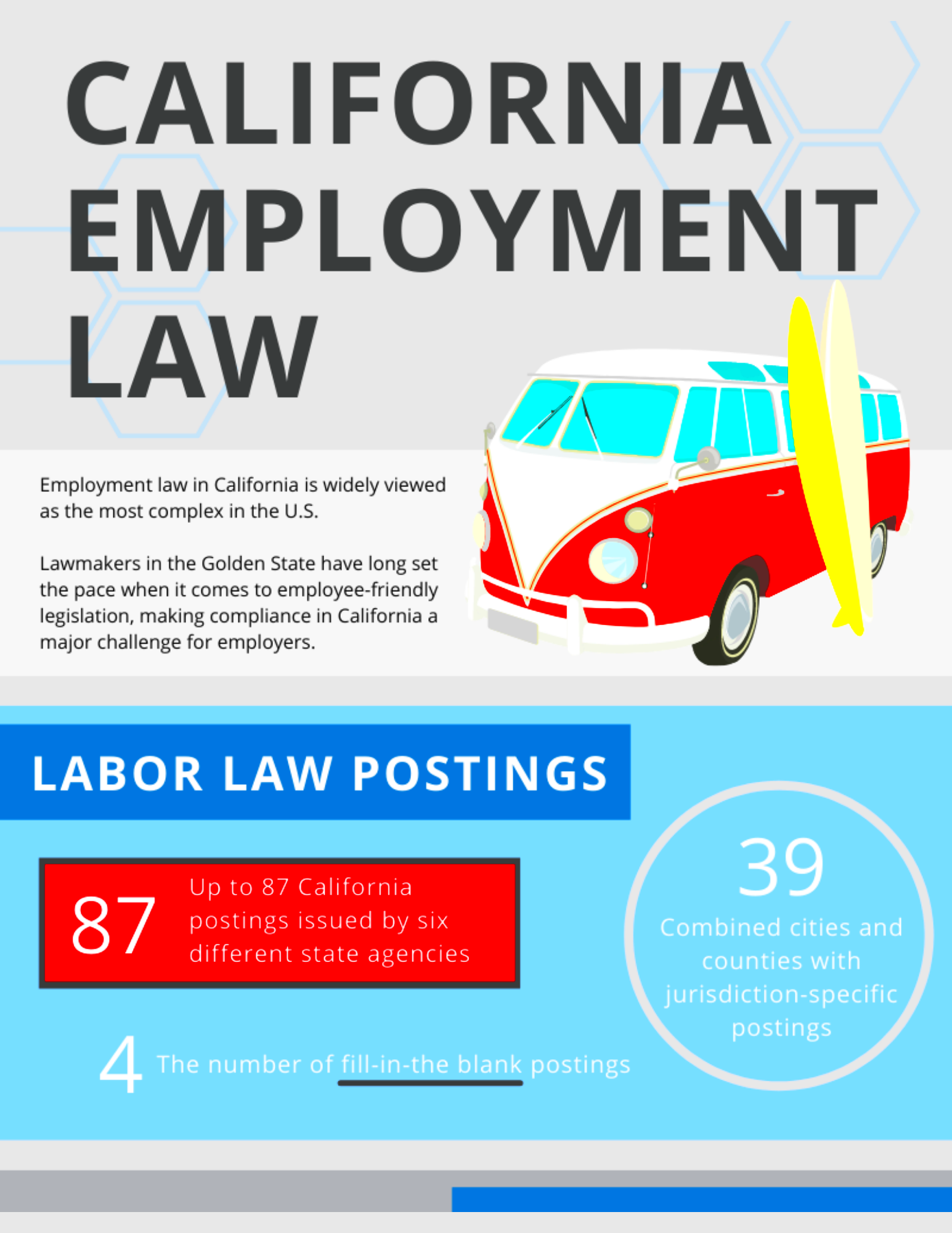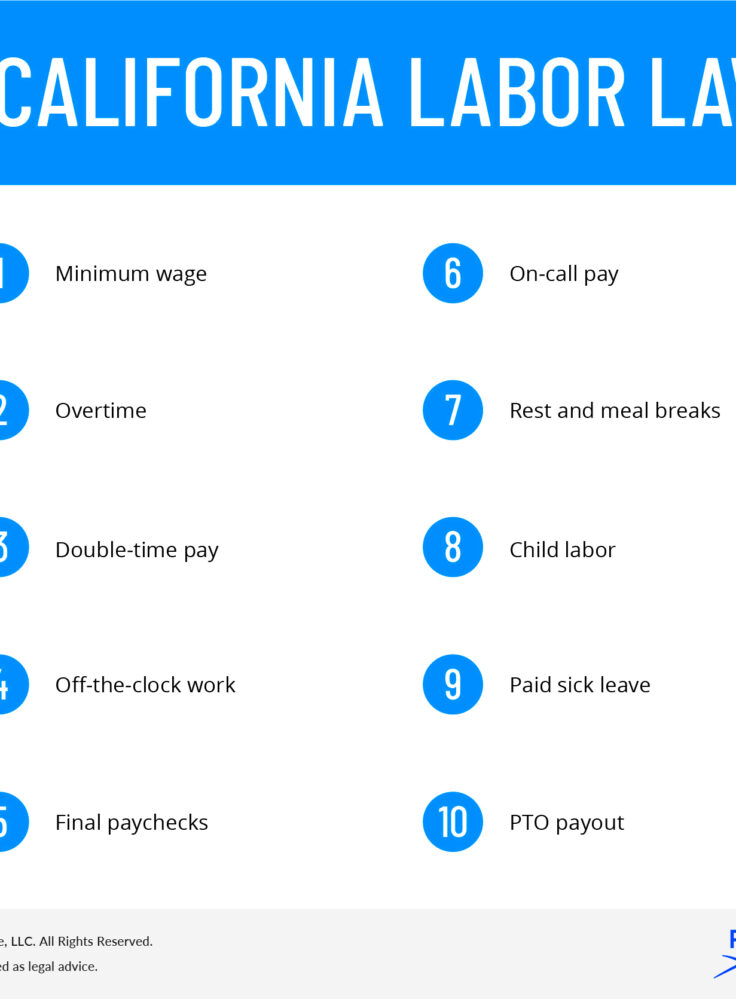Temporary Employee Laws in California: What You Need to Know
Understanding Temporary Employee Classification

In California temporary workers are categorized differently than regular employees and this difference affects their entitlements and perks. Let me give you an overview of how this classification works.
- Temporary Employee: Hired for a specific project or period, usually through a staffing agency or directly by the company. Their employment ends when the project is complete or the agreed term is over.
- Seasonal Employee: Works during peak seasons or busy periods. For example, retail workers hired during the holiday season.
- Interim Employee: Temporarily fills in for an employee on leave or in transition, often for managerial roles.
The significance of these classifications lies in their impact on different facets of employment like perks and job stability. Having gone through the intricacies of work being aware of these classifications allows you to navigate your position more effectively and align your expectations accordingly.
Key Rights of Temporary Employees
In California temporary workers are entitled to various rights that safeguard their fair treatment and well being at work. Drawing from my own encounters here are some key points to keep in mind.
- Wage and Hour Laws: Temporary employees must be paid at least the minimum wage and are entitled to overtime pay if they work more than 40 hours a week or 8 hours a day.
- Anti-Discrimination Protections: They are protected against discrimination based on race, gender, age, disability, and other factors. This means that temporary employees have the same right to a discrimination-free workplace as permanent staff.
- Workplace Safety: Employers are required to provide a safe working environment. Temporary workers should be given the same safety training as permanent employees to avoid workplace hazards.
- Breaks and Rest Periods: California law mandates rest breaks and meal periods for all employees, including temps. Ensure you are given these breaks to maintain your well-being and productivity.
Being aware of these rights can assist you in standing up for yourself and making sure that your temporary job experience is just and considerate. Speaking from my own experience as a temporary worker I can say that being informed about your rights gives you strength and aids in handling any challenges that may come up.
Wages and Compensation for Temporary Workers
A key part of working in a job is grasping the ins and outs of how pay and benefits are managed. Through my experiences in roles I’ve come to realize that having transparency in this area is vital for peace of mind. In California temporary employees have the right to fair pay and let me give you an overview of what to anticipate:
- Minimum Wage: Temporary employees must receive at least the state’s minimum wage, which is periodically updated. This ensures that even if your job is temporary, you’re still earning a fair amount for your work.
- Overtime Pay: If you work more than 8 hours a day or 40 hours a week, you are entitled to overtime pay at 1.5 times your regular hourly rate. This rule is a safeguard to ensure that extended hours are fairly compensated.
- Holiday Pay: Generally, temporary workers do not receive holiday pay unless specified in the employment agreement. It’s always good to clarify this point with your employer or agency.
- Bonuses and Benefits: Unlike permanent employees, temporary workers might not get bonuses or benefits like health insurance. However, some employers do offer perks, so it’s worth inquiring about these possibilities.
Thinking back to my own encounters, I recall the bewilderment and pressure that came with discrepancies in paychecks. Taking the time to grasp your salary package right from the beginning can prevent problems like these and make your temporary employment smoother sailing.
Workplace Safety and Health for Temporary Employees
Creating a workplace that prioritizes safety and health is a basic entitlement for every employee, even those on temporary contracts. Speaking from my own experiences I can vouch for how crucial this factor is in safeguarding ones overall well being. Here are the key points you should be aware of.
- Safety Training: Employers must provide safety training to all employees, including temps. This training should cover potential hazards and proper safety procedures relevant to your job.
- Health Standards: Temporary workers should be working in environments that meet health standards. This includes proper ventilation, sanitation, and ergonomics to prevent workplace injuries.
- Emergency Procedures: You should be informed about emergency procedures and have access to first-aid supplies. Knowing how to respond to emergencies is crucial for your safety.
- Reporting Unsafe Conditions: If you encounter unsafe conditions, you have the right to report them without fear of retaliation. Your health and safety should always be a priority.
In previous positions I sometimes had reservations about specific safety protocols. Being well aware of your rights and the established safety procedures can contribute to creating a work environment where you feel secure and safeguarded throughout your temporary assignment.
Duration and Termination of Temporary Employment
When it comes to jobs there are specific guidelines in place for how long they last and how they can be ended. Being aware of these aspects can prevent surprises and assist you in making decisions about your future. Here are some key points to remember.
- Contract Duration: Temporary jobs are defined by their fixed duration, which should be clearly stated in your employment contract. Whether it’s a few weeks or several months, understanding this term helps manage your expectations.
- Notice Period: Generally, temporary roles don’t require a notice period for termination, but it’s good practice to provide one if you’re leaving early. It reflects professionalism and helps maintain a positive relationship with your employer.
- Reasons for Termination: Employers can terminate temporary employees for various reasons, including project completion or performance issues. Knowing your rights and the reasons for termination can help you handle the situation better.
- Post-Employment: After your temporary role ends, you may be eligible for unemployment benefits, depending on your circumstances. Checking with a career advisor or legal expert can provide clarity on what support you might receive.
I remember a situation when my short term position came to an end unexpectedly and I found myself rushing to find my next job. Being well aware of the details of your contract and how termination works can make these transitions smoother and assist you in handling your temporary job more effectively.
Benefits and Entitlements for Temporary Employees
As a temp worker you may find yourself curious about the perks and entitlements available to you. Having experienced temporary positions I can attest to how this can differ and influence your overall contentment with the job. Here’s a breakdown to help you grasp the benefits and entitlements you can anticipate.
- Health Insurance: Unlike permanent employees, temporary workers often do not receive health insurance unless specified in the contract. Some agencies or employers offer limited health benefits, so it’s worth asking upfront.
- Paid Time Off: Temporary employees typically do not receive paid vacation or sick leave. However, some employers may provide unpaid leave or flexibility depending on the role and duration.
- Retirement Benefits: Generally, temporary workers do not receive retirement benefits like 401(k) plans. If retirement savings are a concern, consider setting up a personal retirement account.
- Training and Development: Some employers invest in training for their temporary staff to enhance skills. This can be a great opportunity for career growth and learning, even if the job is temporary.
- Performance Bonuses: While not common, some temporary positions may offer performance bonuses based on your work quality or project completion. It’s always a good idea to clarify this at the start.
Based on I’ve noticed that not having some perks can be a drawback of taking on a job. Nevertheless being aware of your entitlements can assist you in making choices and negotiating more favorable conditions when necessary.
Differences Between Temporary and Permanent Employees
Grasping the distinctions between temporary and permanent staff can provide clarity on your responsibilities and what is expected of you. Based on my personal insights here is a side by side comparison of these two employment categories.
| Aspect | Temporary Employees | Permanent Employees |
|---|---|---|
| Duration | Fixed term or project-based | Ongoing with no predetermined end date |
| Job Security | Less job security; role ends when project is completed | More job security with ongoing employment |
| Benefits | Limited or no benefits (e.g., health insurance, paid leave) | Usually eligible for a full range of benefits |
| Pay Rate | Often higher hourly rate to compensate for lack of benefits | Regular salary with potential for bonuses and raises |
| Advancement Opportunities | Limited opportunities for advancement | More opportunities for promotions and career growth |
In my view these distinctions emphasize the balance between being stable and being adaptable. Recognizing these factors can assist you in making a decision that aligns with your aspirations and individual situation.
FAQ
What is the typical duration of a temporary job?
The duration can vary widely, from a few weeks to several months, depending on the project or position. It’s important to clarify the expected term when you start the job.
Do temporary employees get paid overtime?
Yes, if you work more than 8 hours in a day or 40 hours in a week, you are entitled to overtime pay at 1.5 times your regular rate. Always ensure that your pay reflects this if applicable.
Can a temporary employee be considered for a permanent position?
While not common, some employers may offer permanent positions to temporary employees based on performance and company needs. It’s a good idea to express your interest and seek feedback on your performance.
Are temporary employees entitled to unemployment benefits?
Eligibility for unemployment benefits depends on various factors, including the reason for termination and the duration of employment. Check with the California Employment Development Department for specific eligibility criteria.
What should I do if I face unsafe working conditions?
Report any unsafe conditions to your employer or staffing agency immediately. You have the right to a safe work environment, and reporting issues helps protect yourself and future employees.
Conclusion
Grasping the subtleties of temporary work in California can significantly impact your job experience. From understanding wage and pay nuances to being aware of your workplace safety rights and benefits every aspect is vital in shaping your professional life. My personal encounters in roles have highlighted the significance of staying informed and taking initiative. Whether you’re considering a position or currently in one being aware of your rights and the differences between temporary and permanent positions can empower you to make choices and advocate for yourself. Keep in mind that the more knowledge you have the smoother you can navigate your temporary employment journey with assurance and transparency.


